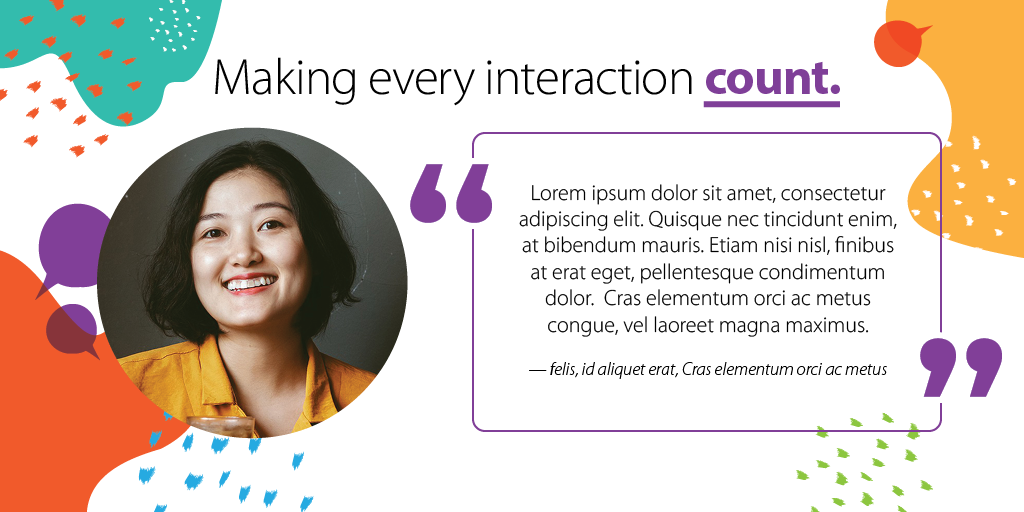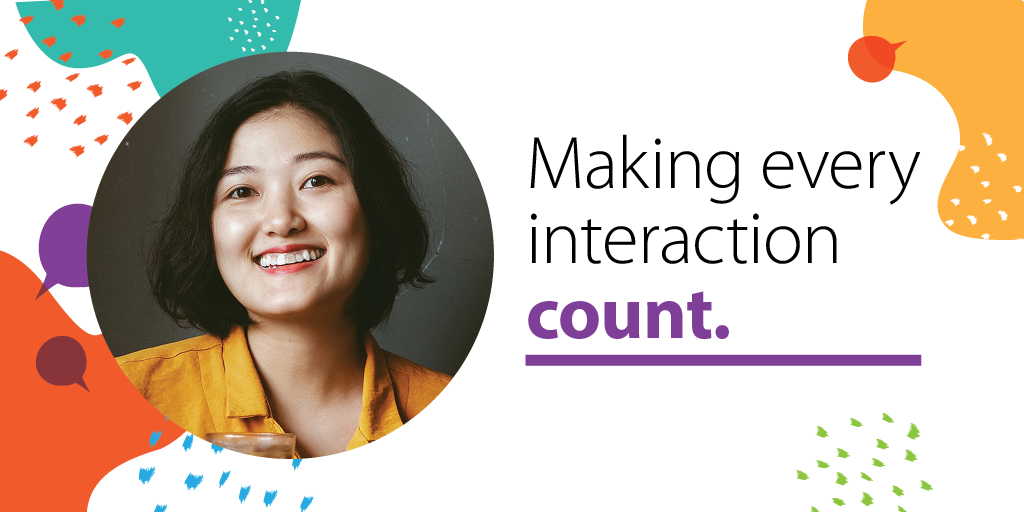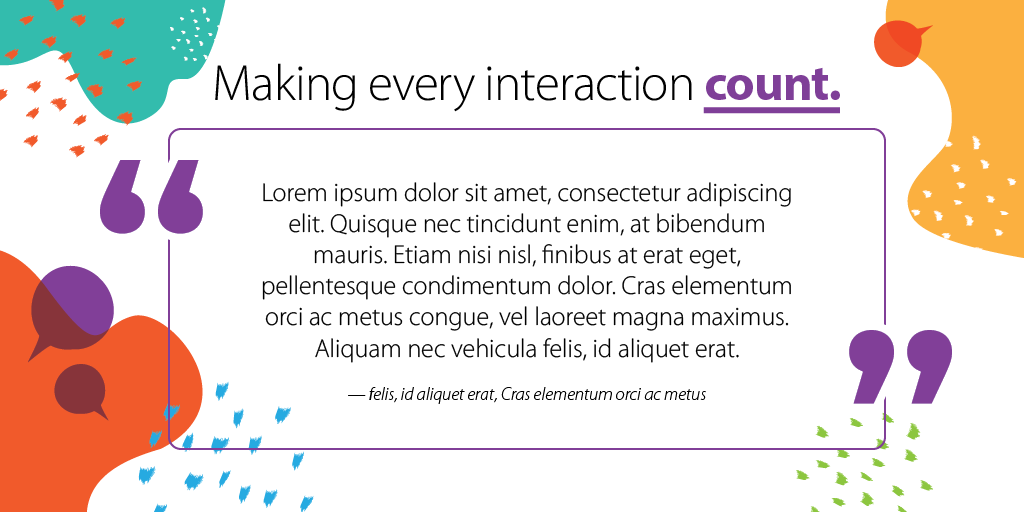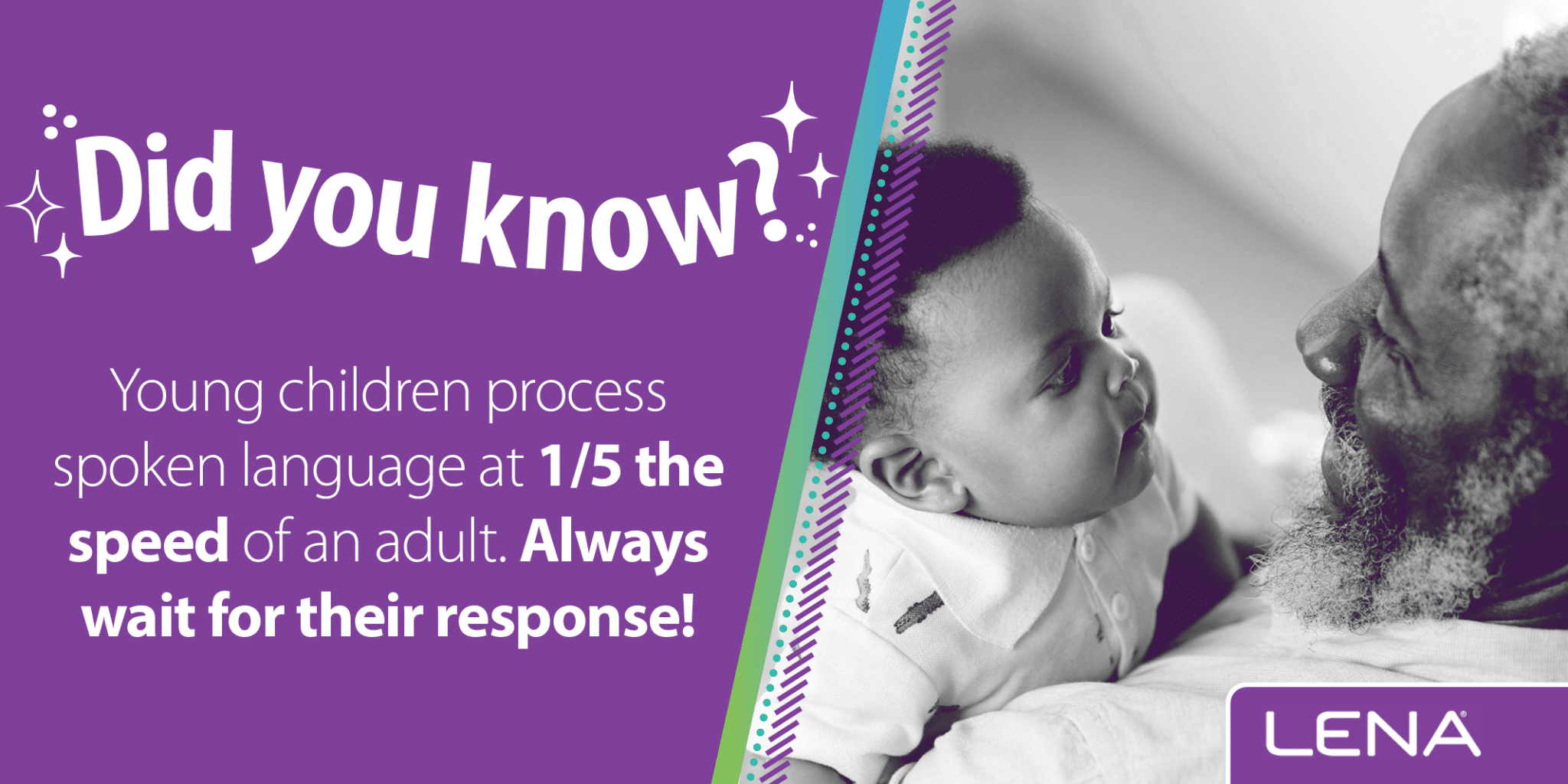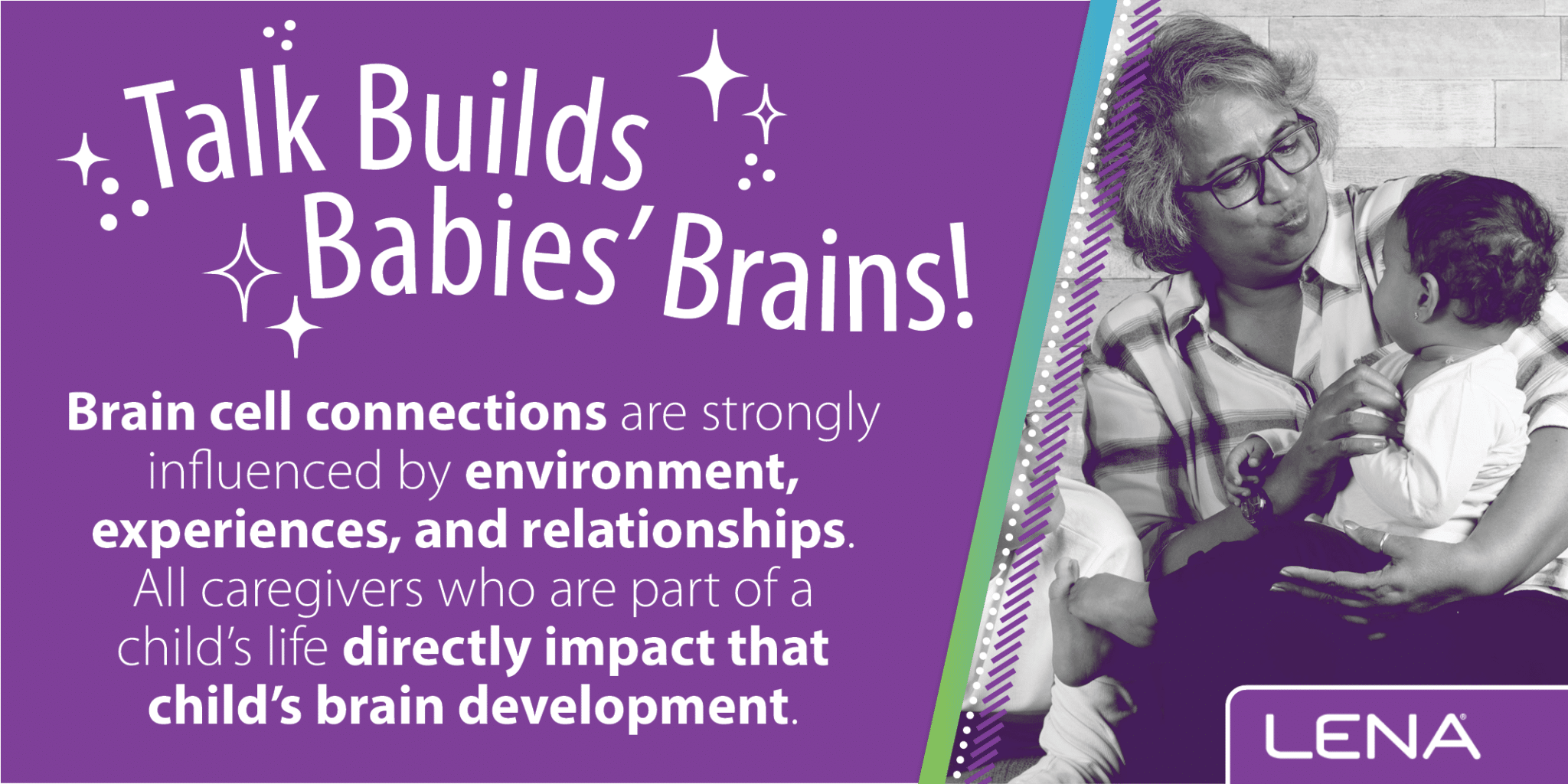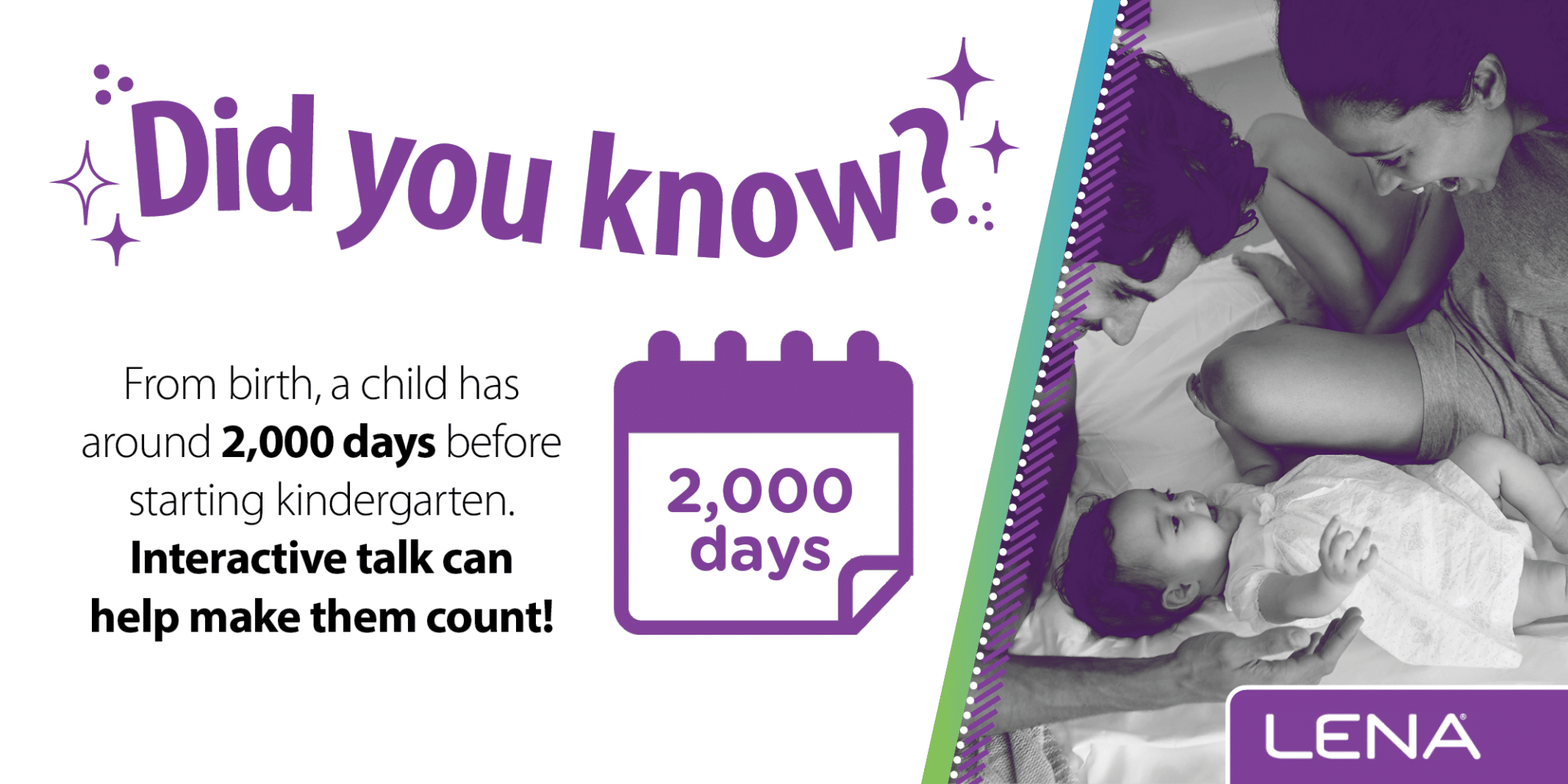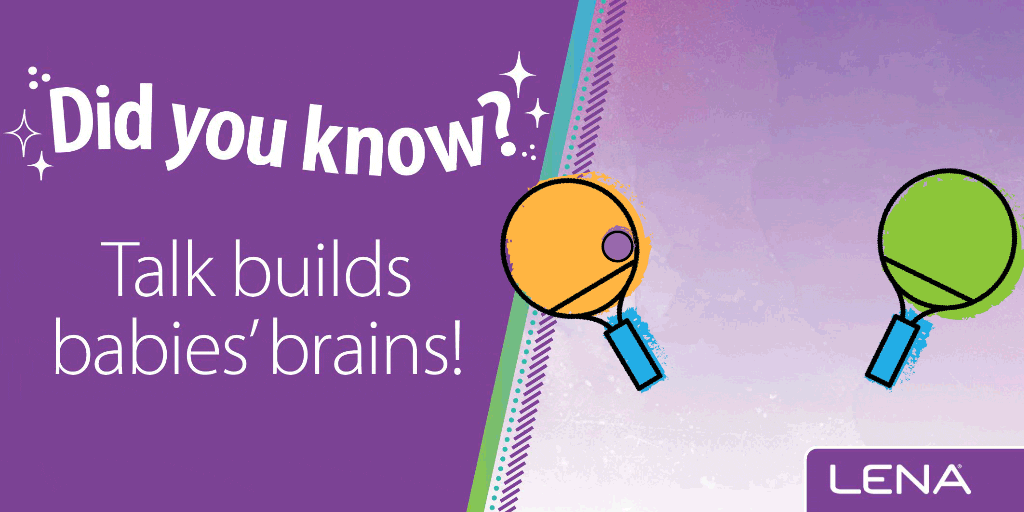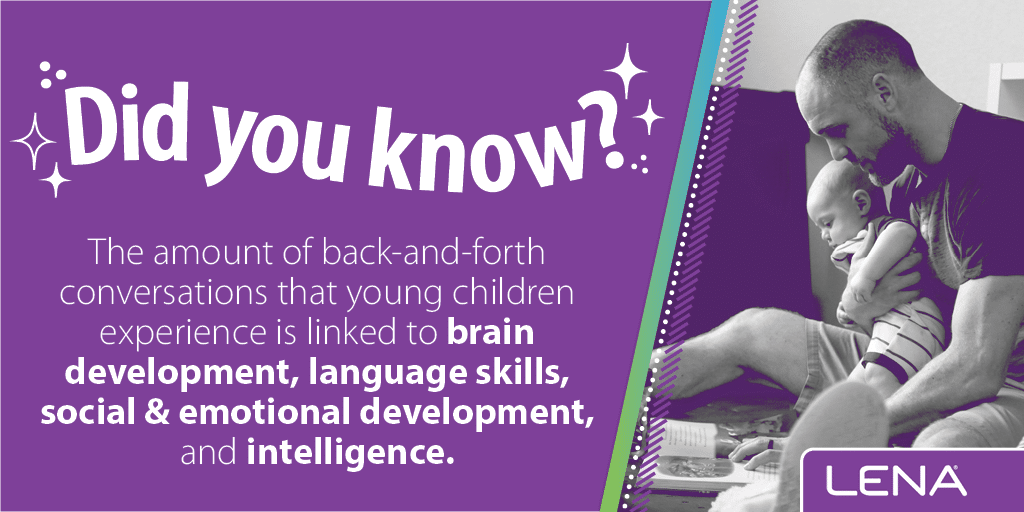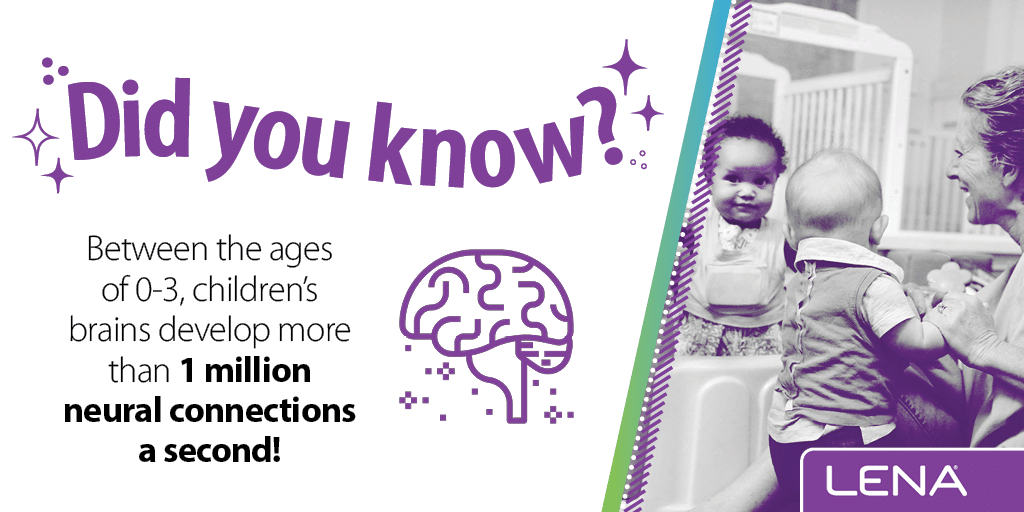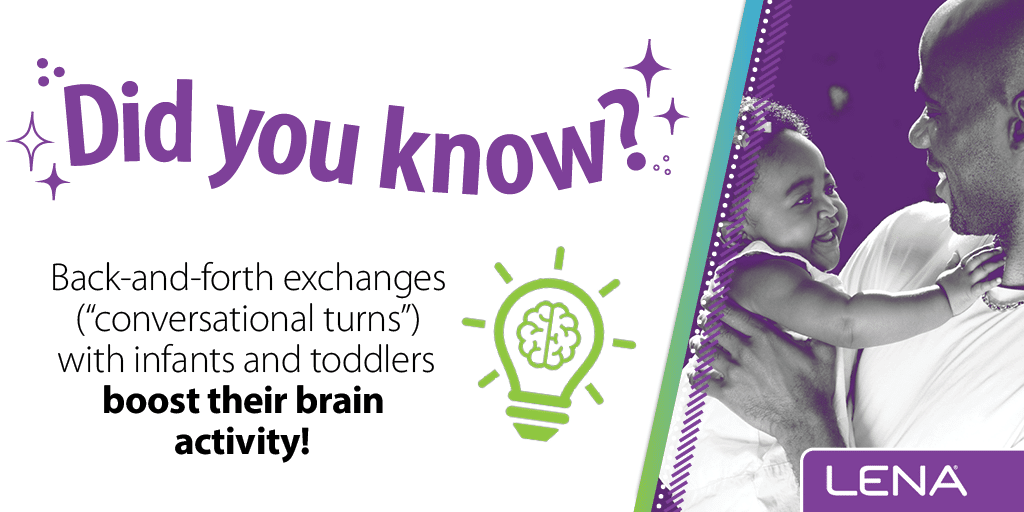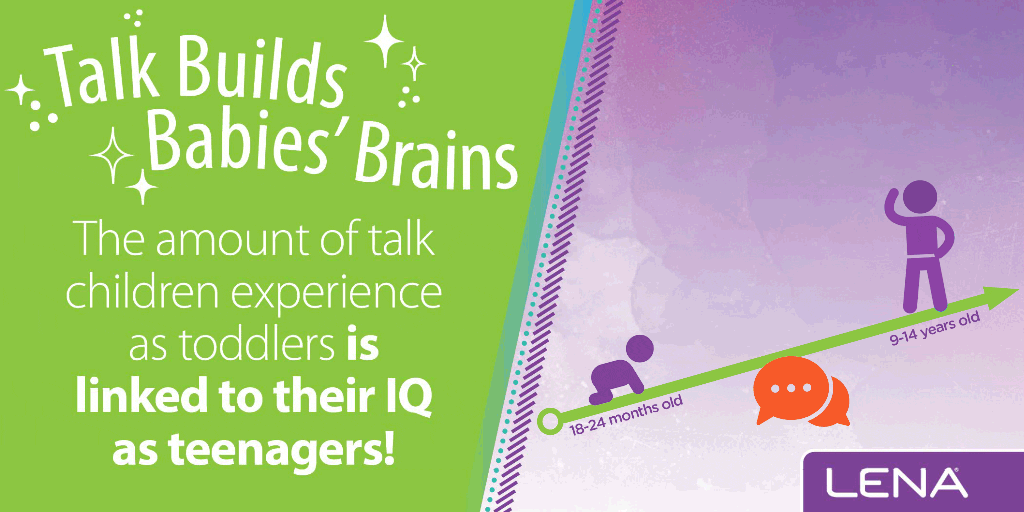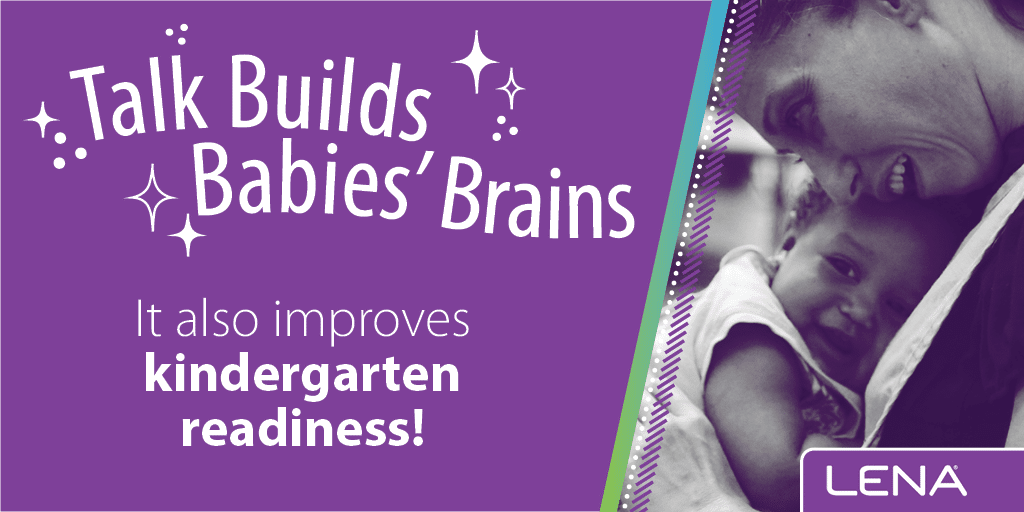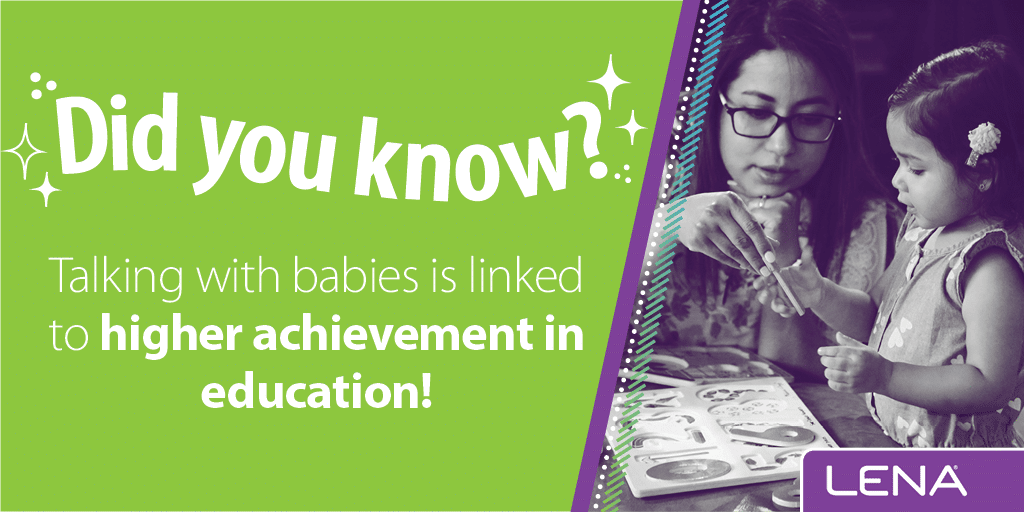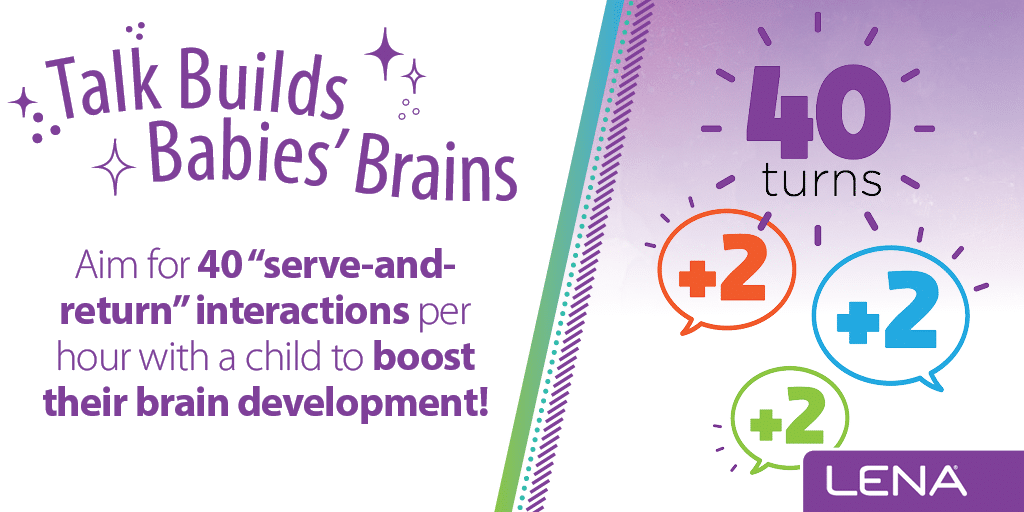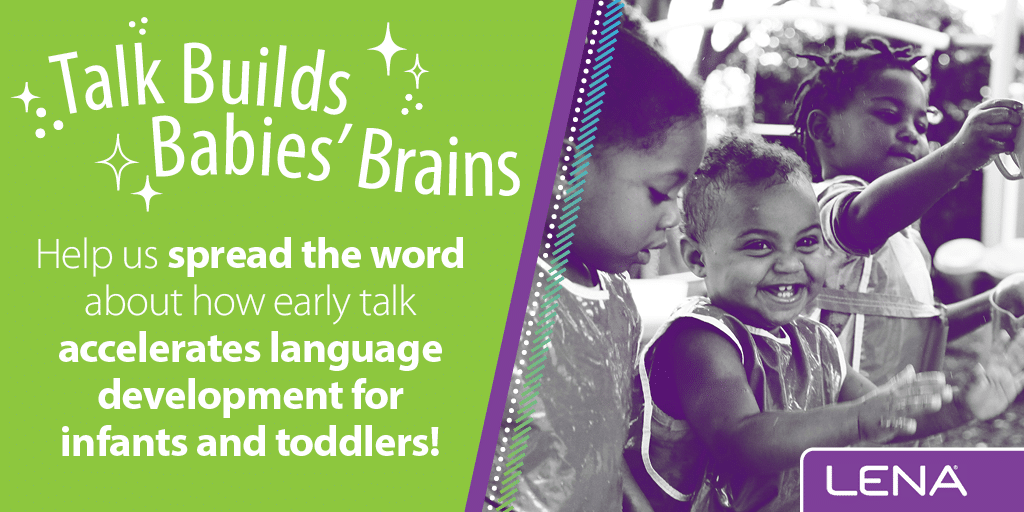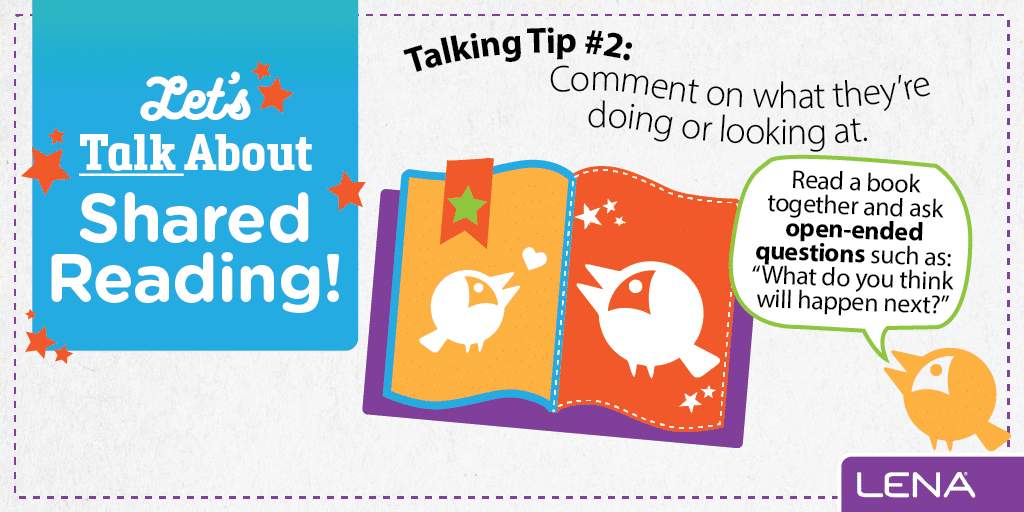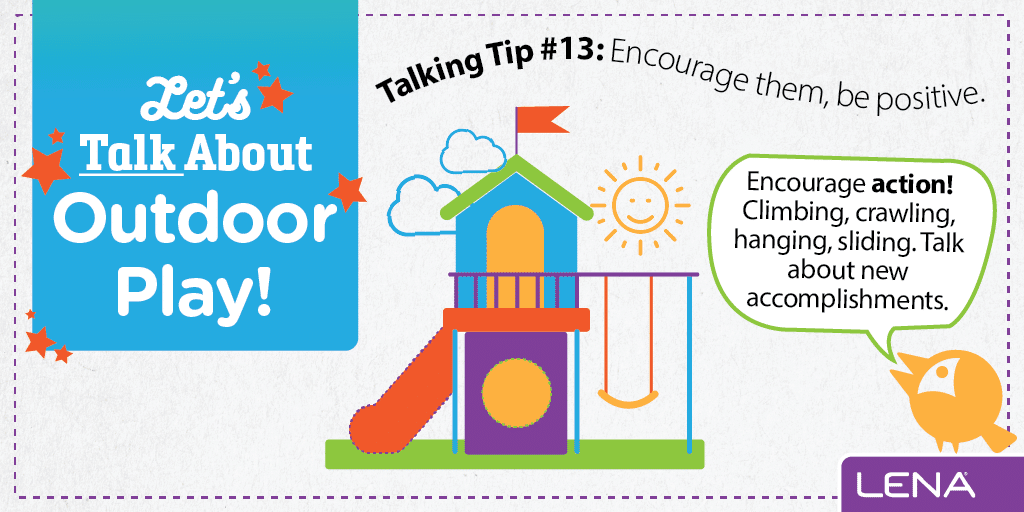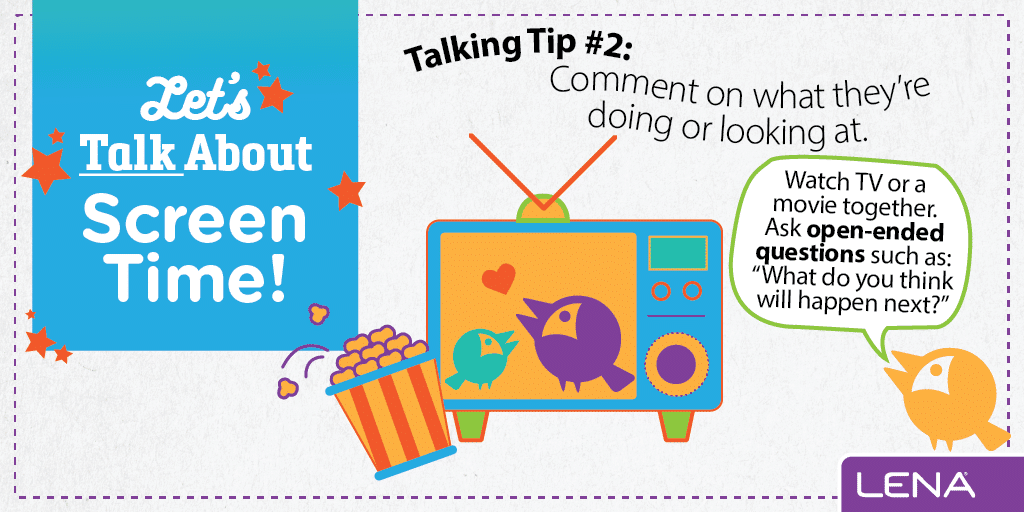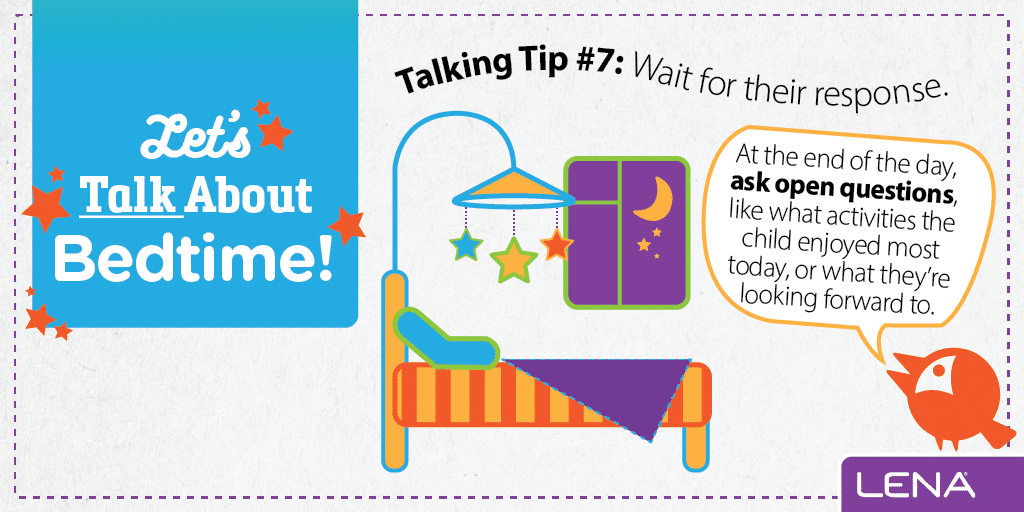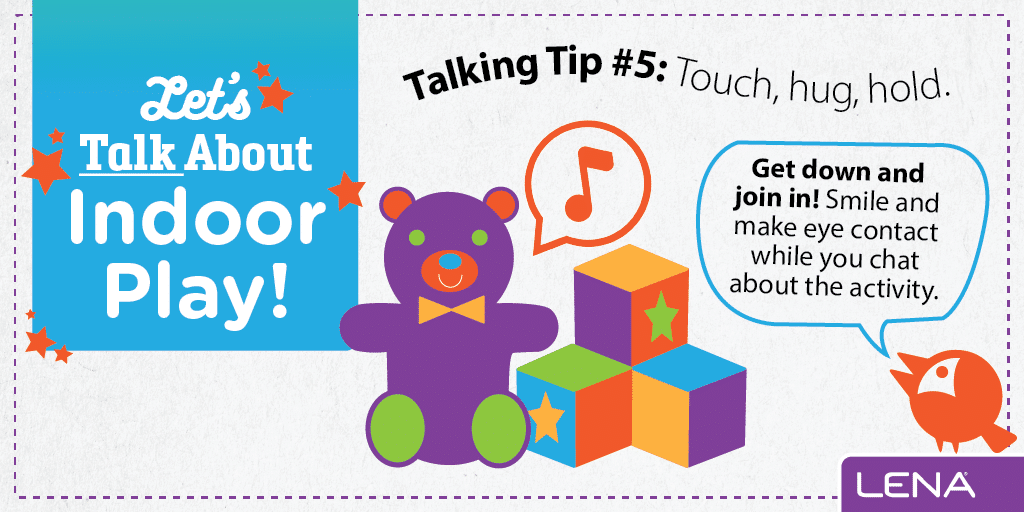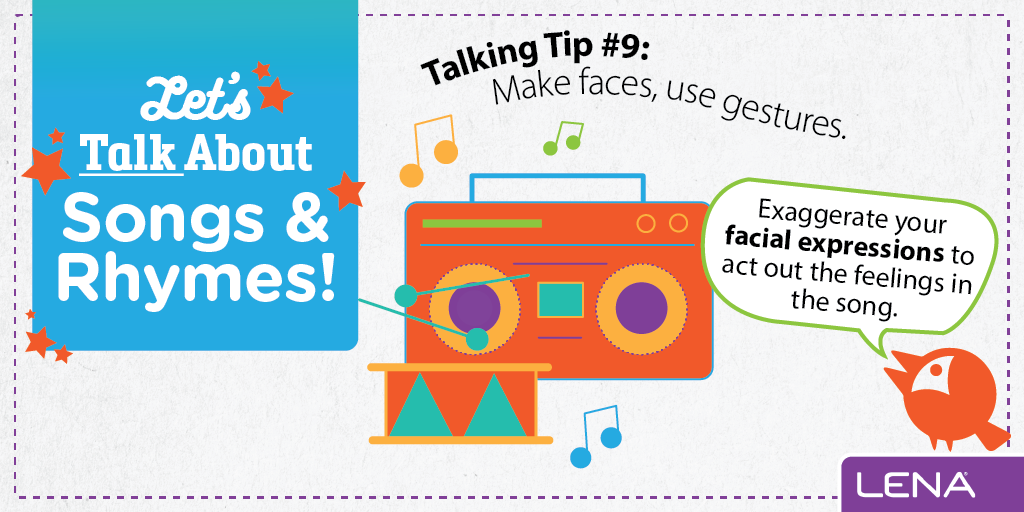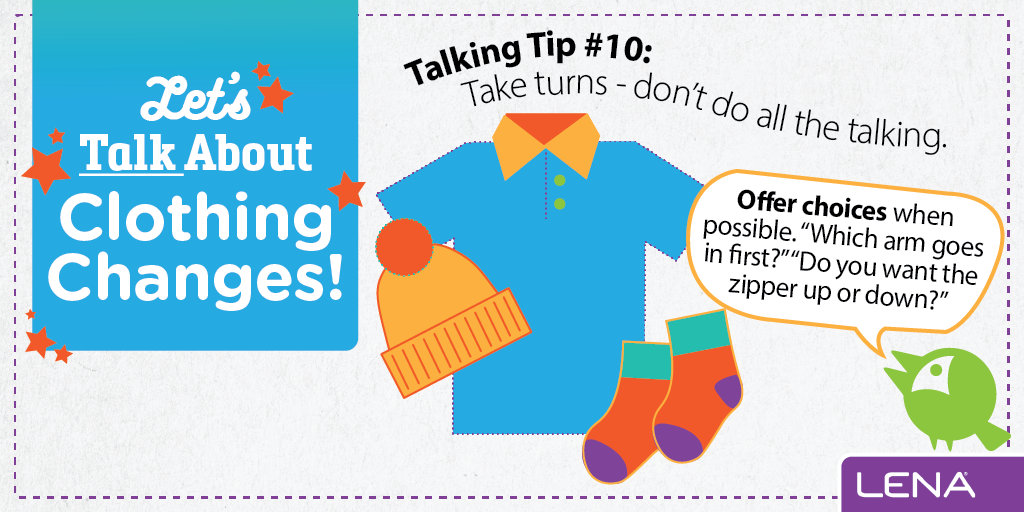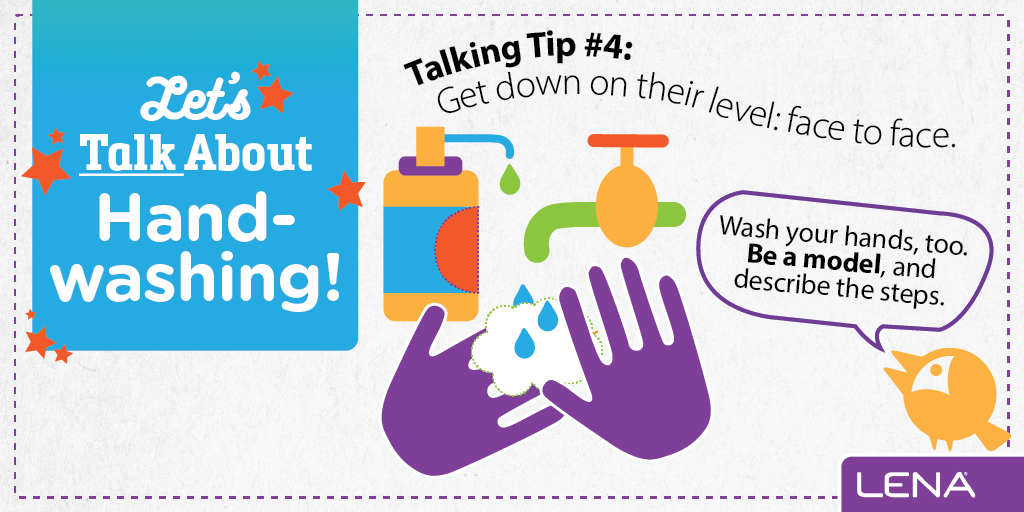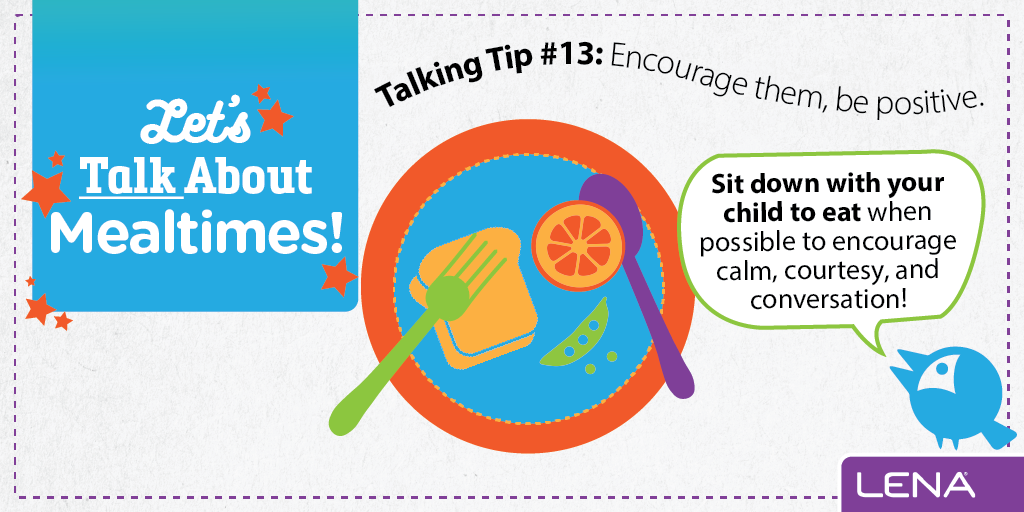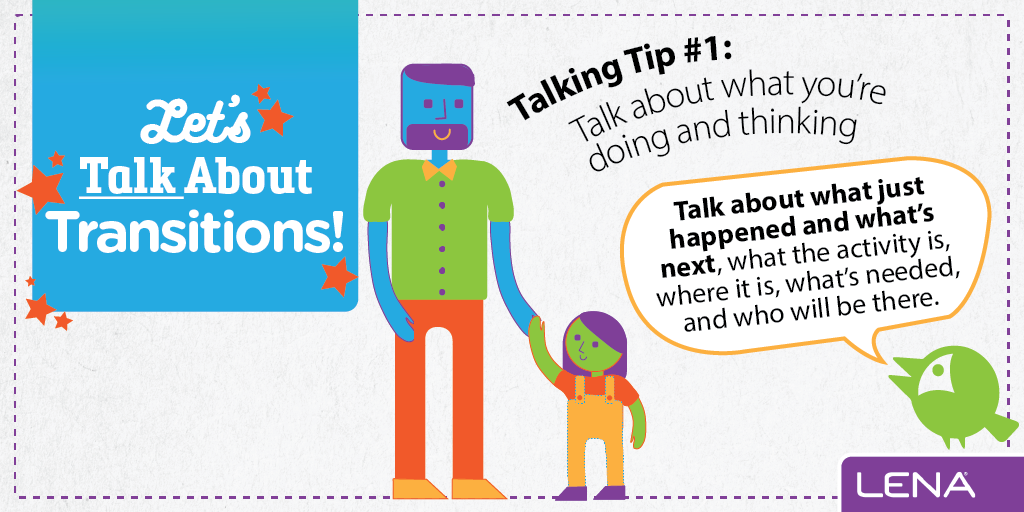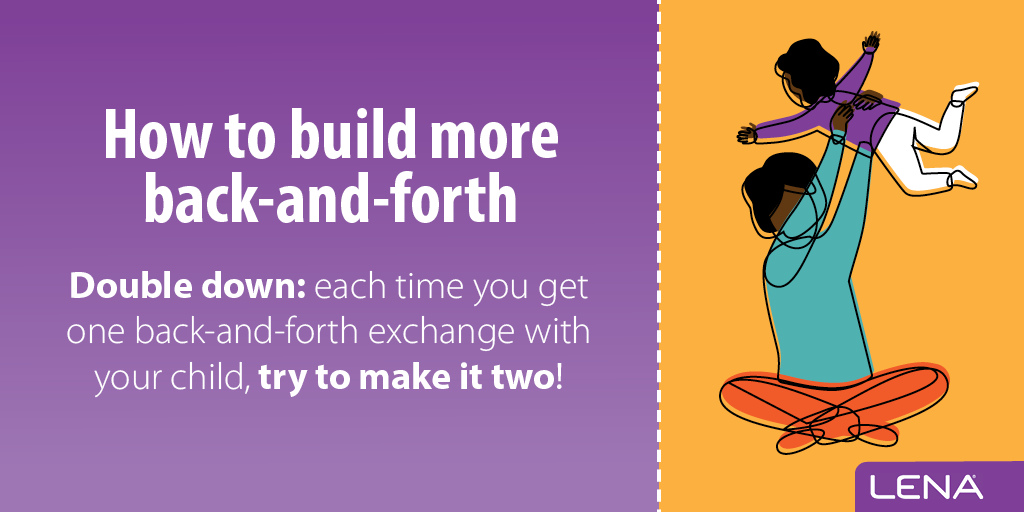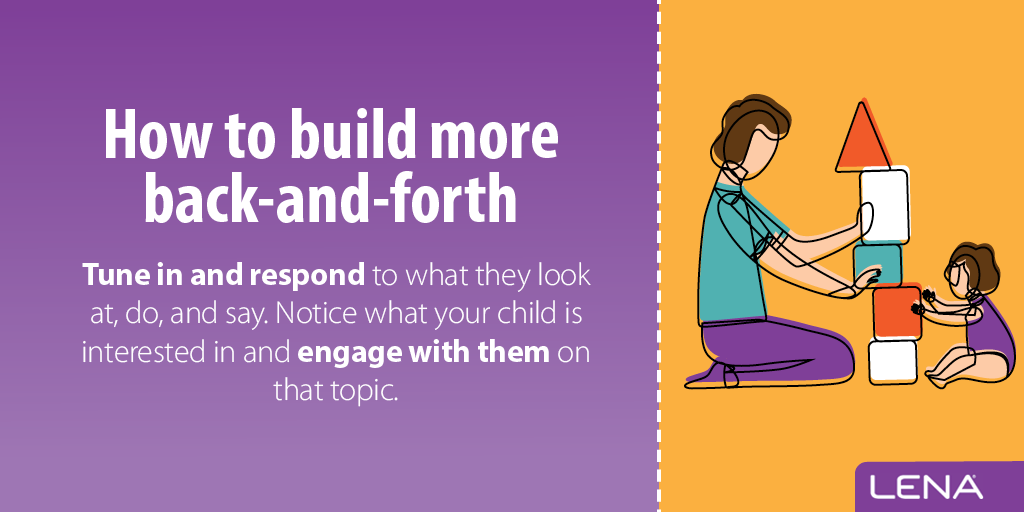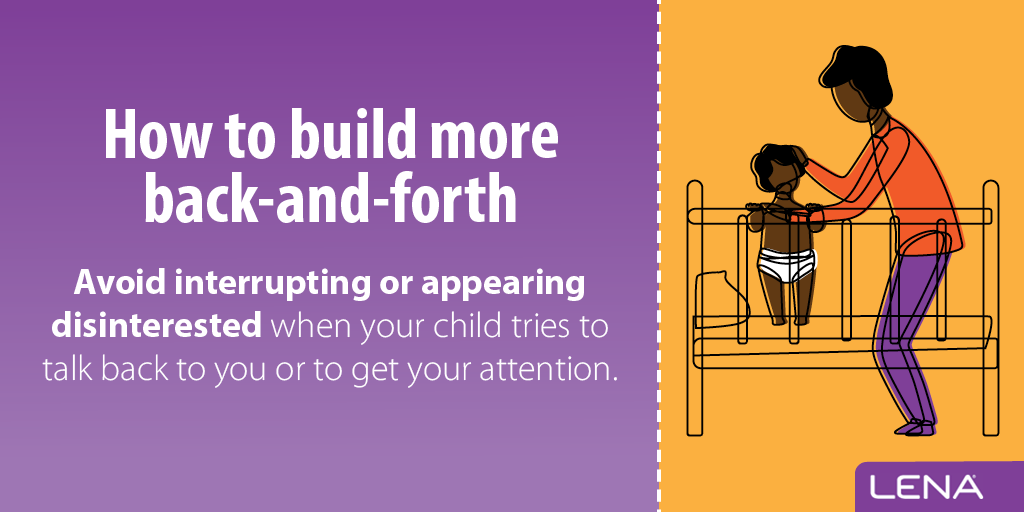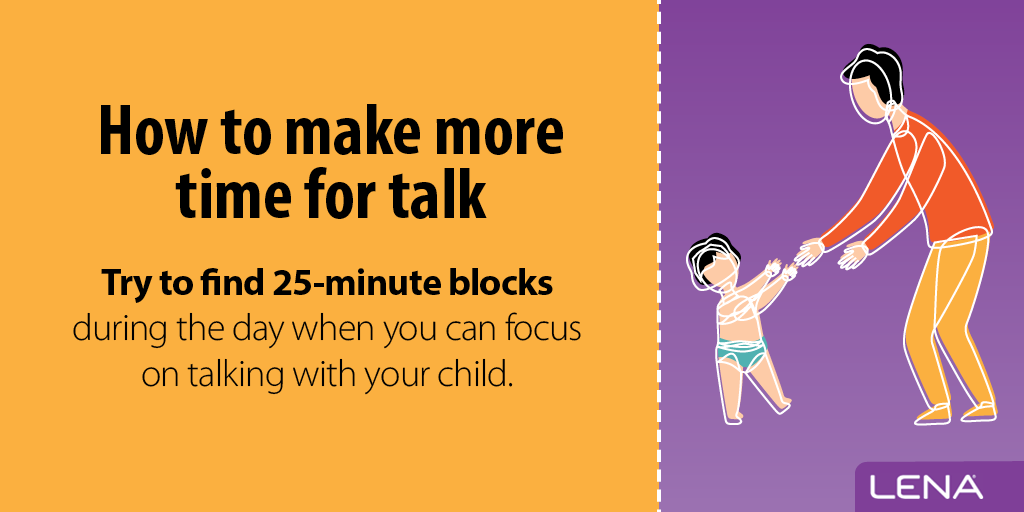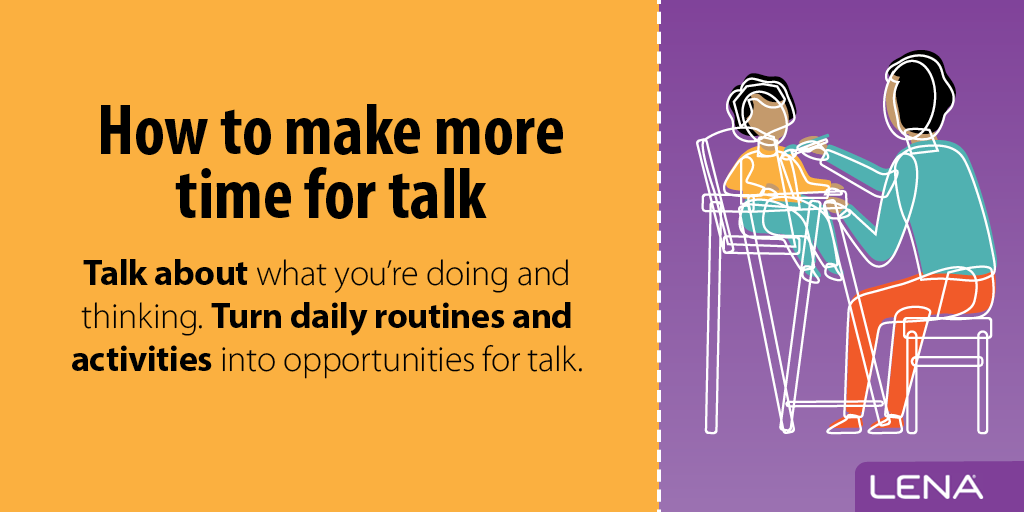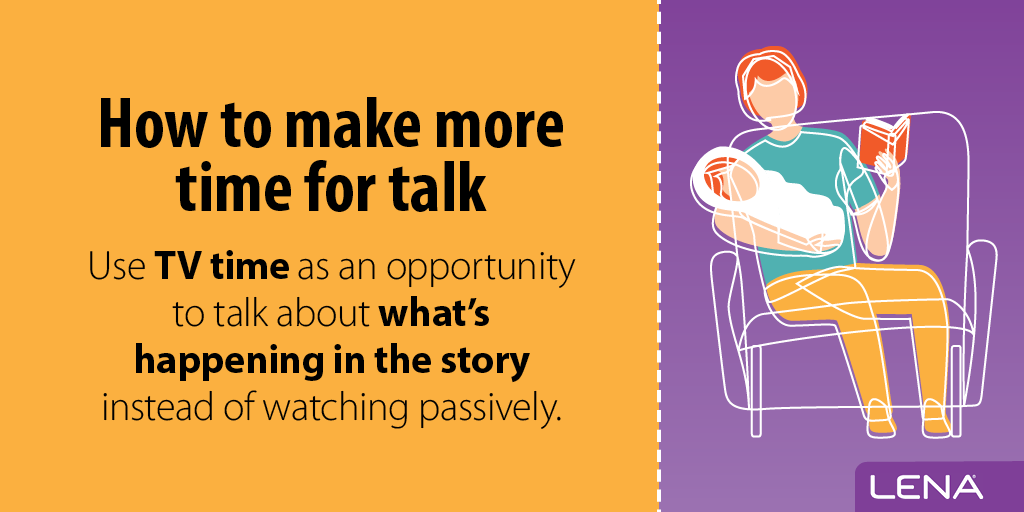LENA - Building brains through early talk
Spread the word about early talk
Why does early talk matter?
Because talk builds babies’ brains!
It’s such a simple concept, but it’s also one that deserves to be shared far and wide. Help us spread the word about how important early talk is and how easy it is to improve!
Estos gráficos y subtítulos también están disponibles en español. ¡Haga clic aquí para verlos!
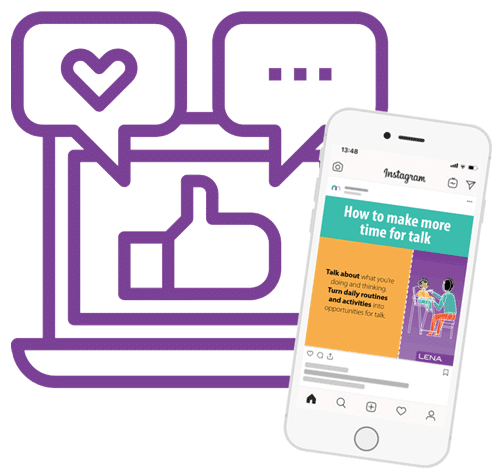
Making every interaction count.
Use our customizable Canva templates below to share and spotlight how teachers and caregivers in your community making interactions with young children count!
Talk builds babies' brains!
Estos gráficos y subtítulos también están disponibles en español. ¡Haga clic aquí para verlos!
The 14 Talking Tips
Estos gráficos y subtítulos también están disponibles en español. ¡Haga clic aquí para verlos!
Practical advice from LENA’s Inside Early Talk report
Estos gráficos y subtítulos también están disponibles en español. ¡Haga clic aquí para verlos!
Share these videos about early talk
To share, just click the arrow in the upper right-hand corner and choose your social media network.



